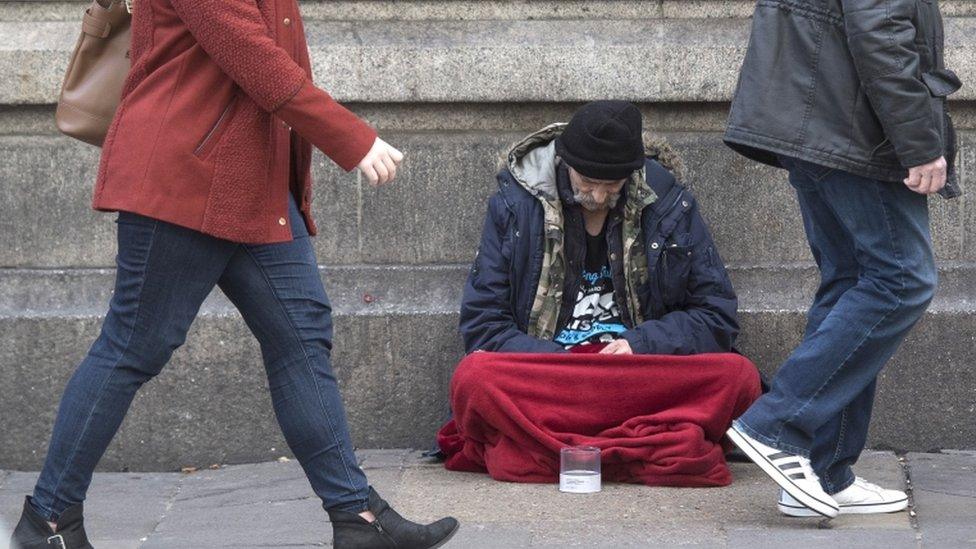Government to repeal law allowing police to arrest rough sleepers
- Published
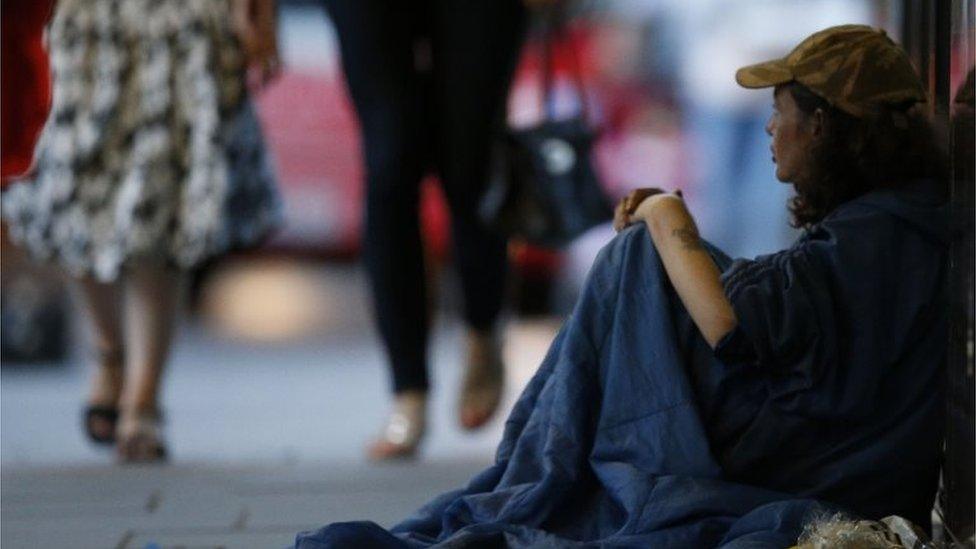
The government has announced it will repeal the Vagrancy Act, which allows police to arrest people for sleeping rough or begging in England and Wales.
Currently anyone convicted under the law faces a fine of up to £1,000 and a two-year criminal record.
However, ministers have now introduced an amendment to a bill in Parliament which scraps the law.
Rough sleeping minister Eddie Hughes said the law was "outdated and needs replacing".
Liberal Democrat Layla Moran, who has campaigned for the change, said she was "elated that we have consigned this archaic and cruel law to history".
"No one should be criminalised for sleeping rough, especially by a piece of legislation passed in the Georgian era," she added.
Under the law - which has been repealed in Scotland and Northern Ireland - police have the power to arrest people found in enclosed places or caught begging in public.
The legislation, which dates back to 1824, initially referred to people sleeping in carts and wagons and imposed a penalty of up to a month's hard labour.
In recent years, police forces have said they were moving away from arresting people under the act in favour of more "meaningful solutions".
'Gesture politics'
Speaking in 2019, Supt Ian Green of the West Midlands Police said the law "often ends with people being given fines they can't afford to pay or being sent to prison, which only exacerbates their problems".
In the same year, data obtained by the BBC found that arrests under the act in England had halved between 2016-2018.
Matt Downie, head of homelessness charity Crisis, welcomed the repeal as a "a landmark day in the fight against homelessness".
"This won't build homes but it is a turning point in how people are treated."
However, writing in The Telegraph, external Frank Young of the Civitas think tank said a repeal was "little more than short-sighted gesture politics".
He argued police had been able to use the act as "part of a wider approach to tackle rough sleeping and help get people to sort their lives out".
"According to frontline officers, the most recalcitrant and harmful only engage with help when the alternative is to face enforcement."
'Delighted'
The government had long-promised to review of the law - in 2021, minister Eddie Hughes said "its time has been and gone".
However, he said that efforts to review the legislation had been delayed by the pandemic.
Speaking on Tuesday, Mr Hughes said he was "delighted" to be able to announce the repeal of the legislation.
"This is the next step of our action, which has already driven a 37% drop in rough sleeping since 2019," he said, adding that the government would set out a strategy for ending rough sleeping "for good".
The government has said it wants to end rough sleeping by the end of the current Parliament.
MPs will vote on the amendment next week when the Police, Crime, Sentencing and Courts Bill returns to the House of Commons.
Related topics
- Published22 February 2022
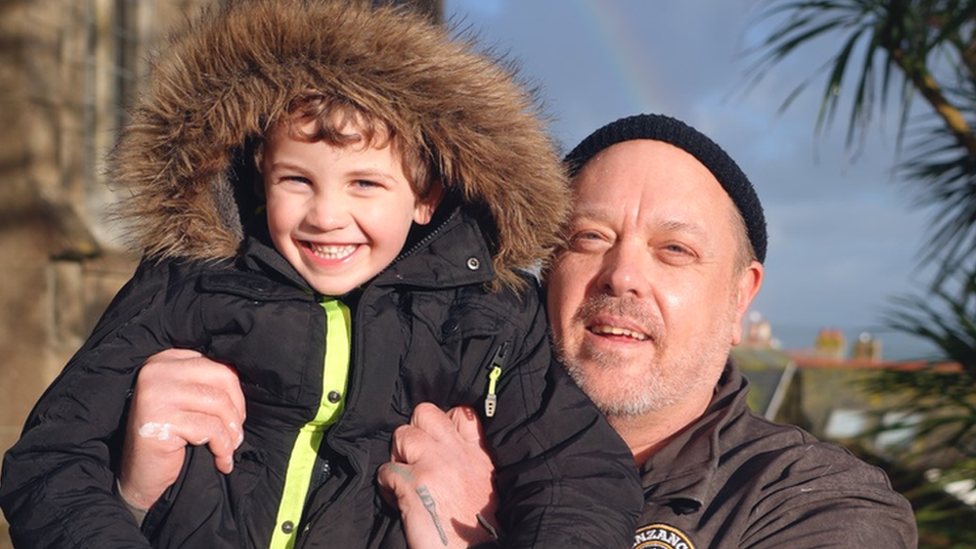
- Published9 December 2021
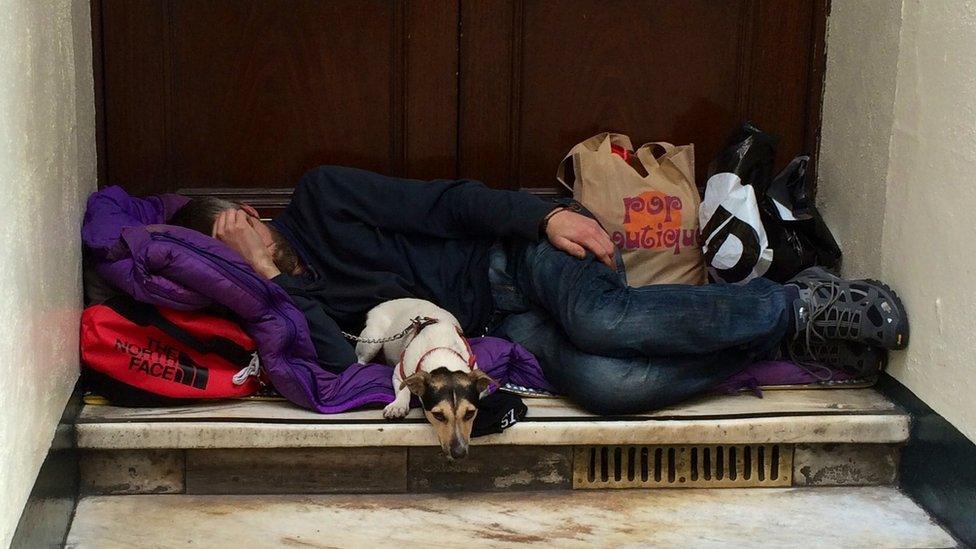
- Published27 August 2021
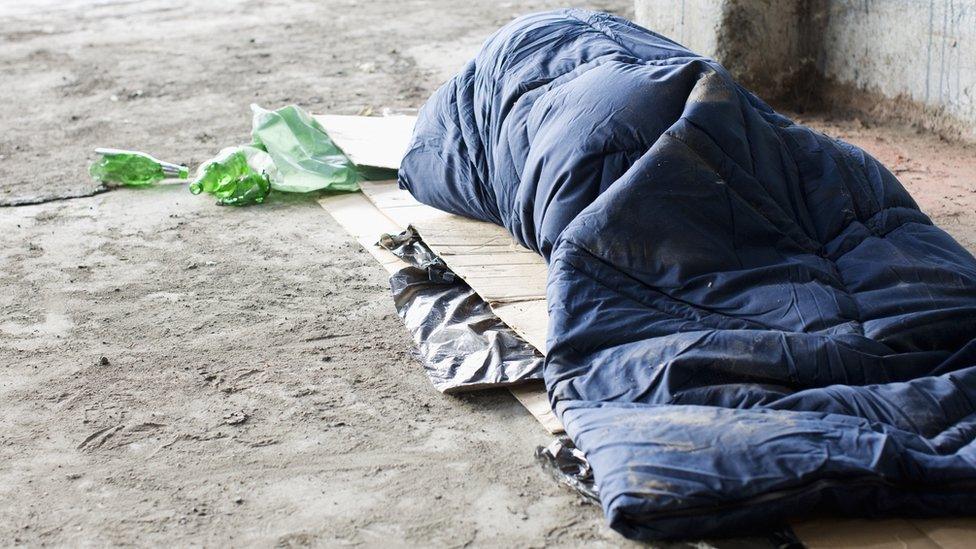
- Published14 April 2021
